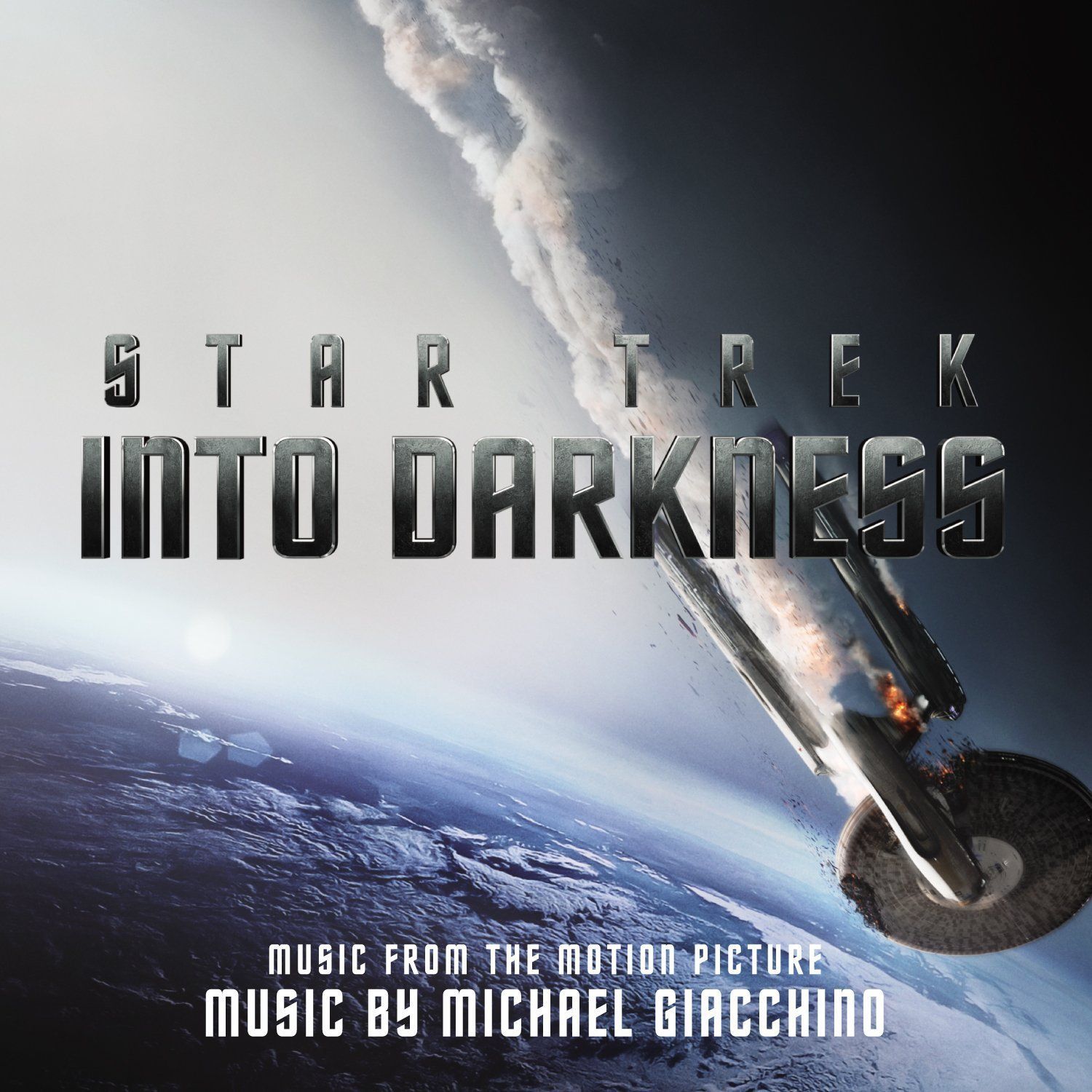Composer Michael Giacchino just might be the hardest-working man in Hollywood, if you look at his output over the past several years. But among the Pixar films and various other projects he tackled since his days of creating moody themes for television series like Lost, Giacchino has crafted one of the most iconic scores of recent years with his title music for J.J. Abrams’ Star Trek.
Although the film used Alexander Courage’s classic music only for an end-credits sequence, the remainder of what Giacchino composed was remarkably true to the tone of Trek. And on Star Trek Into Darkness, he achieved that same feat again, this time venturing even further from the musical backdrop of his forebears.
J.J. Abrams on Khan’s Blood and Keeping the Mystery Box Closed
To commemorate the Blu-ray release of Star Trek Into Darkness and the Star Trek: Stardate Collection, Giacchino spoke with Spinoff Online during the recent press event for the film in Los Angeles. In addition to talking about the influence – or lack thereof – of his predecessors, he discussed coming up with the sequel’s new themes, and revealed some interesting details about his general method of working.
Spinoff Online: How much did you look at Star Trek Into Darkness as a refinement and deepening of the themes you created for the first film as opposed to creating a new bed of music all together?
Michael Giacchino: Well, it was a combination of both, honestly. It was taking the original themes that I had for the first film, building on those, but then also taking all of the new character elements, all of the new location elements, sort of all of the new story elements and building new themes for them. It’s almost like you start at Act One of an opera and now you’re going into Act Two – you still want some of the themes from that act, but there’s going to be a whole lot of new stuff you’ve got to do too. So we had Khan, we had Admiral Marcus, we had the red planet, we had the Klingons – we had any number of new thing that needed musical dressing, so to speak. So that was fun, to be able to just focus on that knowing I had already laid sort of what the foundation was for the first one.
What ideas did you have about the new leitmotifs you would be using for this film and integrating into the existing themes?
It’s always about just kind of watching the scene for me. I love watching it, and then from watching it, I get sort of a tempo in my head and I just sort of get ideas, and I can just start playing on the piano as I’m watching and coming up with ideas that may or may not work. And then it’s all about experimentation. But usually, almost instantly, I get a pretty quick idea of what I want to do.
Alex Kurtzman Talks Khan, Kirk’s Journey and Carol’s Underwear
When you get those ideas, typically how complex are they?
It all depends, but it’s not just like I’m randomly experimenting and go, “Oh, this could go to this or this could go to that.” I’m actually thinking about that thing, so when I sit down for Khan’s theme, I sat down and I really was thinking about him. I was thinking about, OK, how does he think? What’s going on in his head? And for me, it was about understanding him: yes, he is bad, yes, he does bad thing. But also understand, he has a real reason for doing this, and understanding what that reason is. That’s what kind of makes him a real person. Because real people do [bad] things but they usually have a reason. In a lot of movies the bad guy is just treated as “he’s the bad guy.” But for him, you really kind of understood why he was doing it, and I liked that. So once I understood them and once I figured that out, it was just about sitting down and trying to translate those feelings into music – what would that sound like musically? So for me, there’s a lot of repetitive notes in his theme, and it’s always about his thinking and his planning and his meticulous sort of way of going about things. But there’s also an emotional aspect to it as well, so it was just about combining those two ideas.
Alice Eve on Carol Marcus and That Controversial Scene
At this point do you feel completely independent from the previous Trek themes?
Yes.
You’re not borrowing from them at all?
I didn’t borrow from them in the first movie, either. And I had thought about it, because I loved their scores, but it just didn’t fit the movie we were making. It was of a different Star Trek than ours. But once we understood that and let go of that and did something new for the first one, this movie was really fun for me because it was all about just building on all of the stuff that was really difficult to build for the first one.


